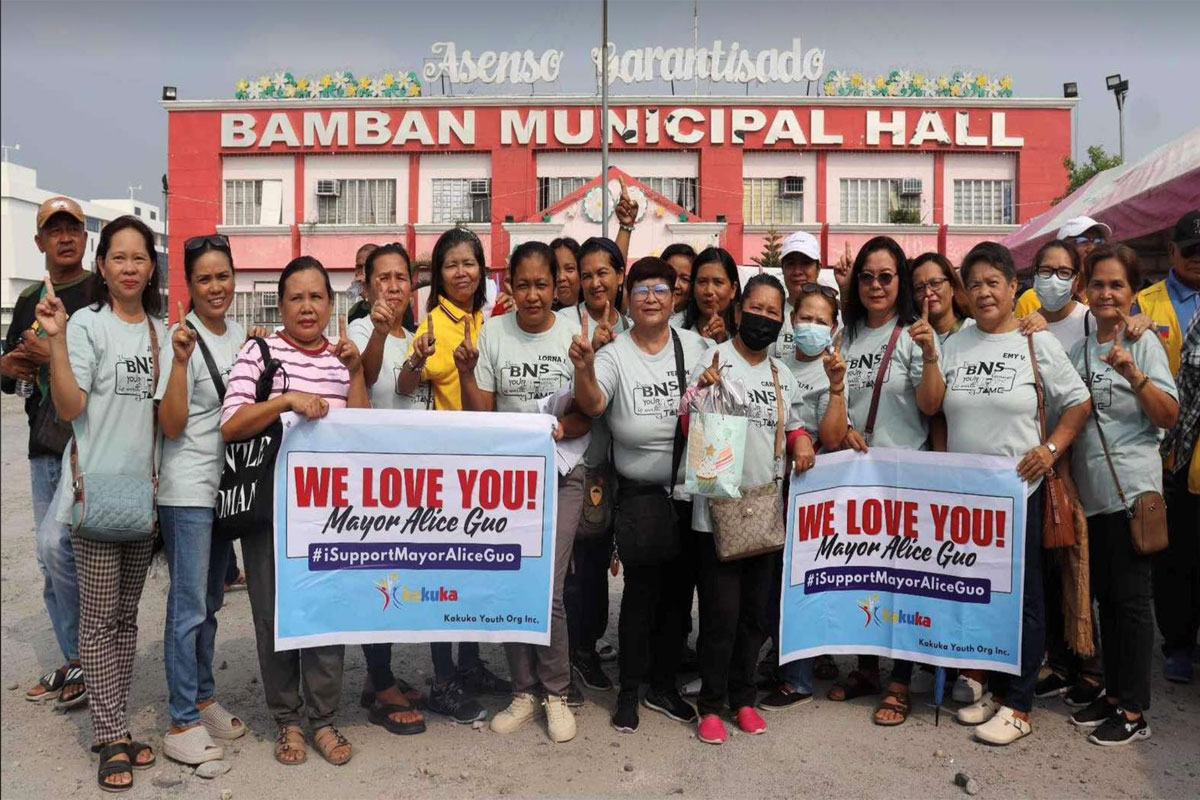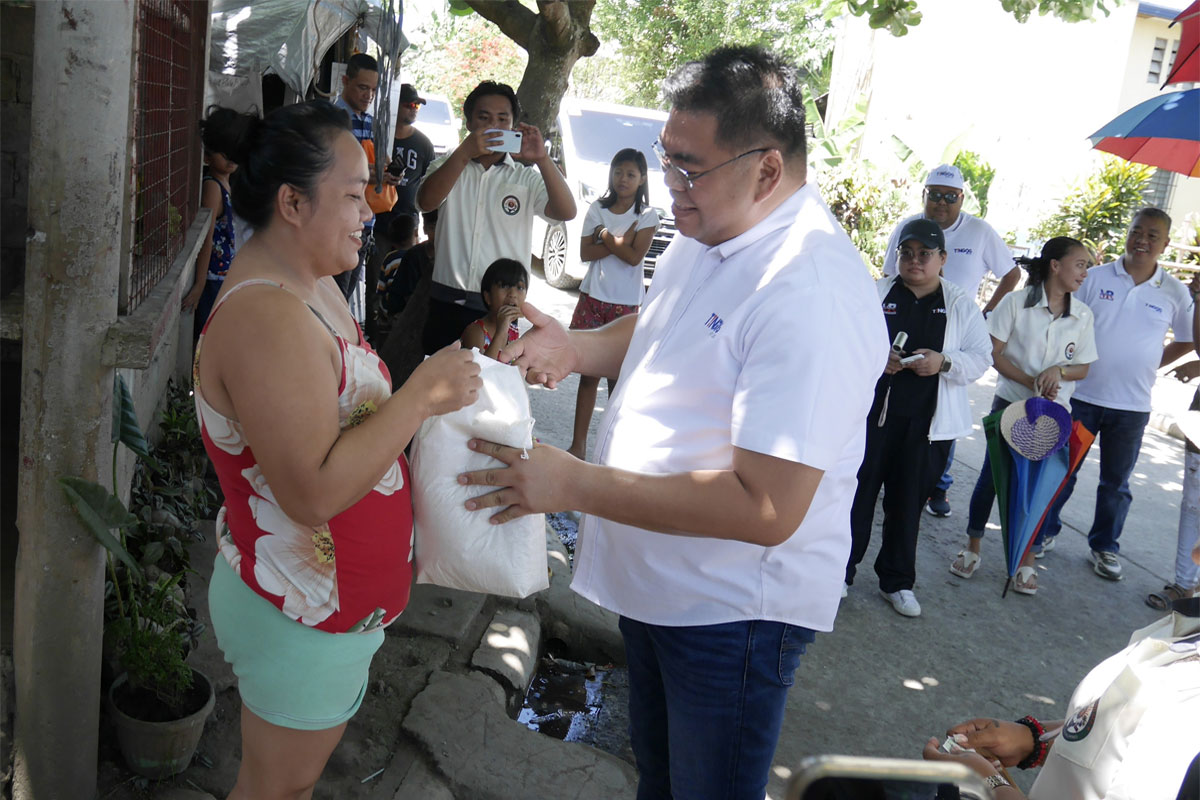 Dr. Tony Leachon with Health Sec. Teodora Herbosa
Dr. Tony Leachon with Health Sec. Teodora Herbosa
How to solve healthcare workers crisis in the Philippines : Sec. Ted Herbosa steps up
 HEALTH Secretary Teodoro Herbosa will meet with DOLE, PRC, DOH, CSC to discuss how the DOLE PhilJobNet will connect nurses to employers. They are focusing on the 47,000 nurses who passed the nurse licensure exam from 2021 to 2023.
HEALTH Secretary Teodoro Herbosa will meet with DOLE, PRC, DOH, CSC to discuss how the DOLE PhilJobNet will connect nurses to employers. They are focusing on the 47,000 nurses who passed the nurse licensure exam from 2021 to 2023.
There are positive ways on to deal with this chronic problem. We need to think differently given the challenging environment especially after the pandemic.
As a patient, already with grave concerns regarding the high costs of hospitalization, tests and medications, to realize that the nursing is not only below standards but is coming from a healthworker who FAILED, and can possibly worsen matters (or even kill me) terrifies.
Since these hardworking nurses are presumably un-identifiable and their FAILED status kept a secret further jeopardizes the health of everyone.
This non-discrimination will lead legitimate nurses to leave and seek greener pastures. And the local healthcare system populated by substandard FAILURES. Thus aggravating the shortage and effectively sweeping the problem under the carpet.
DOH in coordination with other concerned agencies should find ways to keep good nurses from leaving and not hide the shortage under what will end up as a growing population of FAILURES treated as legitimate nurses.
We might shift the conversation from those who failed to those who passed or board eligible ( pre board or those who failed – better in communication ). The problem is how to locate them and how to provide them data on where the 4500 vacancies are located. We will start with the 10764 who passed the May 2023 NLE.
I think that we have enough PRC passers. If DOH wants to help those who failed, then DOH must come up with real plan including tiered classification with specific job description and corresponding salary grade.
As the Secretary of the Department of Health, Sec. Herbosa will propose a range of alternative solutions to address the problems faced by nurses in the Philippines over the short and long term.
Here are some potential measures:
Short-term solutions:
1. Salary increase: Work with relevant government agencies and healthcare institutions to review and revise the salary scales for nurses. Ensuring that nurses receive competitive and fair compensation will help alleviate the issue of low pay and attract more individuals to the nursing profession.
2. Improve working conditions: Implement measures to address poor working conditions, such as implementing regulations on maximum working hours, ensuring reasonable patient-to-nurse ratios, and providing necessary resources and equipment for efficient healthcare delivery.
3. Financial incentives: Introduce financial incentives such as bonuses, allowances, and performance-based rewards to motivate nurses and recognize their dedication and contribution to the healthcare sector.
4. Enhanced training and career development: Establish programs to provide additional training, professional development opportunities, and career advancement pathways for nurses. This would not only improve their skills and knowledge but also offer them a sense of progression and job satisfaction.
Long-term solutions:
1. Strengthen healthcare infrastructure: Invest in expanding and improving healthcare facilities across the country to create more employment opportunities for nurses. This would help absorb the surplus of nurses and ensure that they can find suitable positions within the healthcare system.
2. Collaborate with international partners: Develop agreements and partnerships with other countries to facilitate overseas employment opportunities for Filipino nurses. This would allow nurses to explore better-paying jobs abroad while also benefiting from the remittances they send back to the Philippines.
2. Education and career guidance: Enhance the career guidance and counseling services provided to nursing students to align their expectations and career choices with the demand and opportunities within the healthcare sector. This would help manage the surplus of nursing graduates and align their skills with the country’s healthcare needs.
4. Public awareness campaigns: Launch public awareness campaigns to promote the value and importance of the nursing profession in society. This can help change the perception of nursing as a low-paying job and highlight the vital role nurses play in delivering quality healthcare.
5. Policy advocacy and regulation: Work closely with relevant stakeholders, including professional nursing associations, to advocate for policies and regulations that protect the rights and welfare of nurses, ensuring fair compensation, safe working conditions, and career growth opportunities.
These short and long-term solutions aim to address the issues of low pay, poor working conditions, and the surplus of nurses by improving their overall working environment, creating more opportunities, and elevating the status of the nursing profession in the Philippines.
6.Collaborating with private hospitals can be instrumental in addressing the challenges faced by nurses in the Philippines. Here are some additional solutions to encourage private hospital collaboration:
A.Incentives for private hospitals: Offer financial incentives, tax breaks, or other benefits to private hospitals that actively participate in initiatives to improve nurse working conditions and provide fair compensation. These incentives can encourage private hospitals to prioritize the well-being of nurses and create attractive work environments.
B.Public-private partnerships: Foster public-private partnerships to jointly address the issues faced by nurses. This can involve sharing resources, expertise, and best practices to improve working conditions and enhance the overall nursing experience. By working together, public and private hospitals can create a more sustainable and supportive nursing workforce.
C.Quality certification programs: Introduce quality certification programs for private hospitals that prioritize nurse well-being, such as providing reasonable working hours, implementing appropriate staffing levels, and offering professional development opportunities. This certification can serve as a mark of distinction and attract both nurses and patients to these institutions.
D.Collaboration on training programs: Collaborate with private hospitals to develop training programs that enhance the skills and competencies of nurses. This can include joint initiatives on specialized training, continuing education, and advanced certifications, which would benefit nurses and contribute to their career growth.
E.Information sharing and benchmarking: Facilitate platforms for private hospitals to share best practices and benchmark their performance in terms of nurse compensation, working conditions, and career development. This exchange of information can promote healthy competition among private hospitals and encourage them to adopt measures that improve nurse satisfaction and retention.
F.Advisory boards and committees: Establish advisory boards or committees that include representatives from private hospitals, nursing associations, and government bodies. These platforms can facilitate regular dialogue, collaboration, and policy formulation to address the challenges faced by nurses collectively.
G.Research and data collection: Encourage private hospitals to participate in research studies and data collection initiatives that focus on nursing workforce issues. The findings from such studies can inform evidence-based policies and interventions to improve nurse working conditions in both public and private healthcare settings.
By fostering collaboration with private hospitals, the government can leverage their resources, expertise, and influence to create a more supportive environment for nurses. This collaboration can lead to positive changes in working conditions, pay scales, and career development opportunities for nurses in the private healthcare sector.
7.Collaborating with hospitals in countries like the United States, Canada, and Australia can offer additional opportunities and benefits for Filipino nurses. Here are some potential solutions for collaboration with hospitals in these countries:
-Bilateral agreements and partnerships: Work with the respective governments and healthcare authorities of the United States, Canada, and Australia to establish bilateral agreements and partnerships that facilitate the exchange of nursing professionals.
8. Another thing I thought of is expanding nurses through study now pay later with xxx number of years served in PH. Or improving benefits with attached to tenure (ex retirement)
Possibly the solution is a combination of increased salary , asking nurses to stay at least 5-7 years in the Philippines and using nurses who failed as nursing aides etc
9 Long term will be offering scholarships with 5-7 years stay in the country and opening more nursing schools.
10 . In addition to increasing nurses’ salaries, how might the government use the strategy of huge accounting SGV? SGV continuously attracts good talent through a strategic program of being a training ground and they are prepared to let some of these talents move on to greener pastures after a certain number of years. But while they are in SGV, they are able to contribute significantly.
For individuals who have failed the nursing board exam, there are still various ways to support their professional growth and help them remain productive.
Here are some suggestions:
1. Identify strengths and alternative career paths: Assess the individual’s strengths, skills, and interests to explore alternative career paths within the healthcare sector. They may consider roles such as healthcare administration, medical coding, medical transcription, patient advocacy, medical sales, or healthcare education. Providing career counseling and guidance can help them identify suitable options.
2. Additional training and certifications: Encourage individuals to pursue additional training and certifications in specific healthcare fields or related areas. This can expand their knowledge and make them more marketable for alternative healthcare roles. Examples include certifications in medical coding, medical transcription, healthcare management, or healthcare quality improvement.
3. Volunteering and internships: Encourage individuals to engage in volunteering or internships within healthcare organizations. This can provide valuable hands-on experience, networking opportunities, and a chance to develop transferable skills. Volunteering can also contribute to personal growth and a sense of purpose while seeking alternative career paths.
4. Professional development programs: Promote participation in professional development programs and workshops tailored to the individual’s interests and strengths. These programs can offer skill-building opportunities, networking events, and mentorship programs to enhance their professional growth and increase their chances of finding fulfilling employment.
5. Support for reattempting the nursing board exam: If the individual is determined to pursue a career as a registered nurse, provide support, resources, and guidance for reattempting the nursing board exam. This can include access to review materials, mock exams, and mentorship from experienced nurses or educators. Assisting them in identifying areas of improvement and providing study strategies can increase their chances of success in subsequent attempts.
6. Diversify healthcare-related skills: Encourage individuals to acquire additional skills that complement the nursing profession. This can include acquiring proficiency in medical research, healthcare technology, data analysis, healthcare policy, or patient advocacy. Developing a broader skill set can open doors to alternative career opportunities within the healthcare industry.
7. Personal and emotional support: Provide emotional support and counseling to individuals who may feel discouraged or disheartened after failing the nursing board exam. Help them develop resilience, self-confidence, and a positive mindset to move forward and explore new paths. Offering mentorship and peer support networks can be beneficial in navigating these challenges.
Remember, it’s crucial to acknowledge and celebrate the individual’s efforts and achievements, regardless of the exam outcome. Encouraging them to explore alternative paths and supporting their professional growth can help them remain productive and find fulfillment in the healthcare sector. By Dr. Tony Leachon
###
Anthony C. Leachon, M. D.
Independent Health Reform Advocate
Past President ,
Philippine College of Physicians
Internist – Cardiologist
Manila Doctors Hospital





















